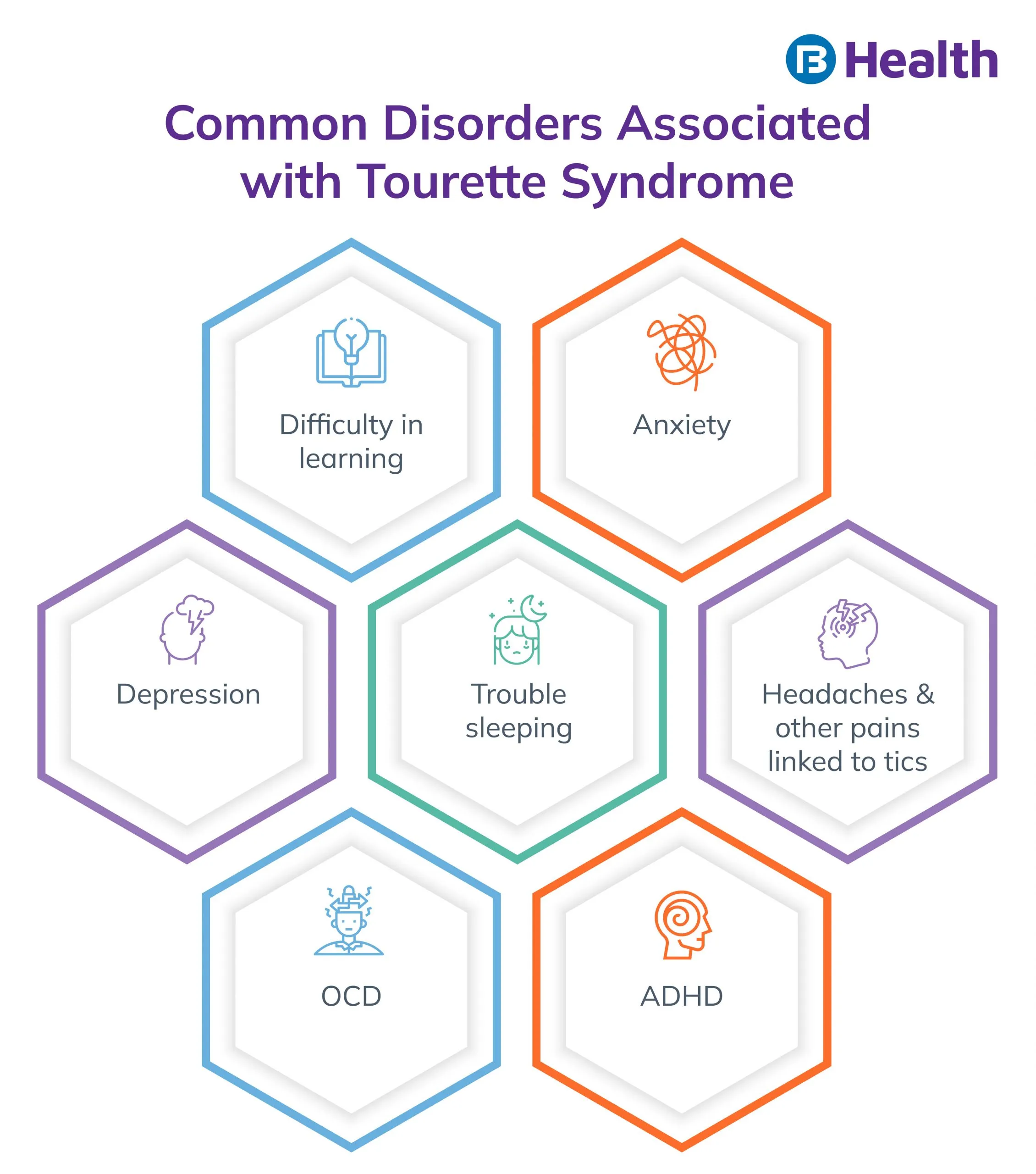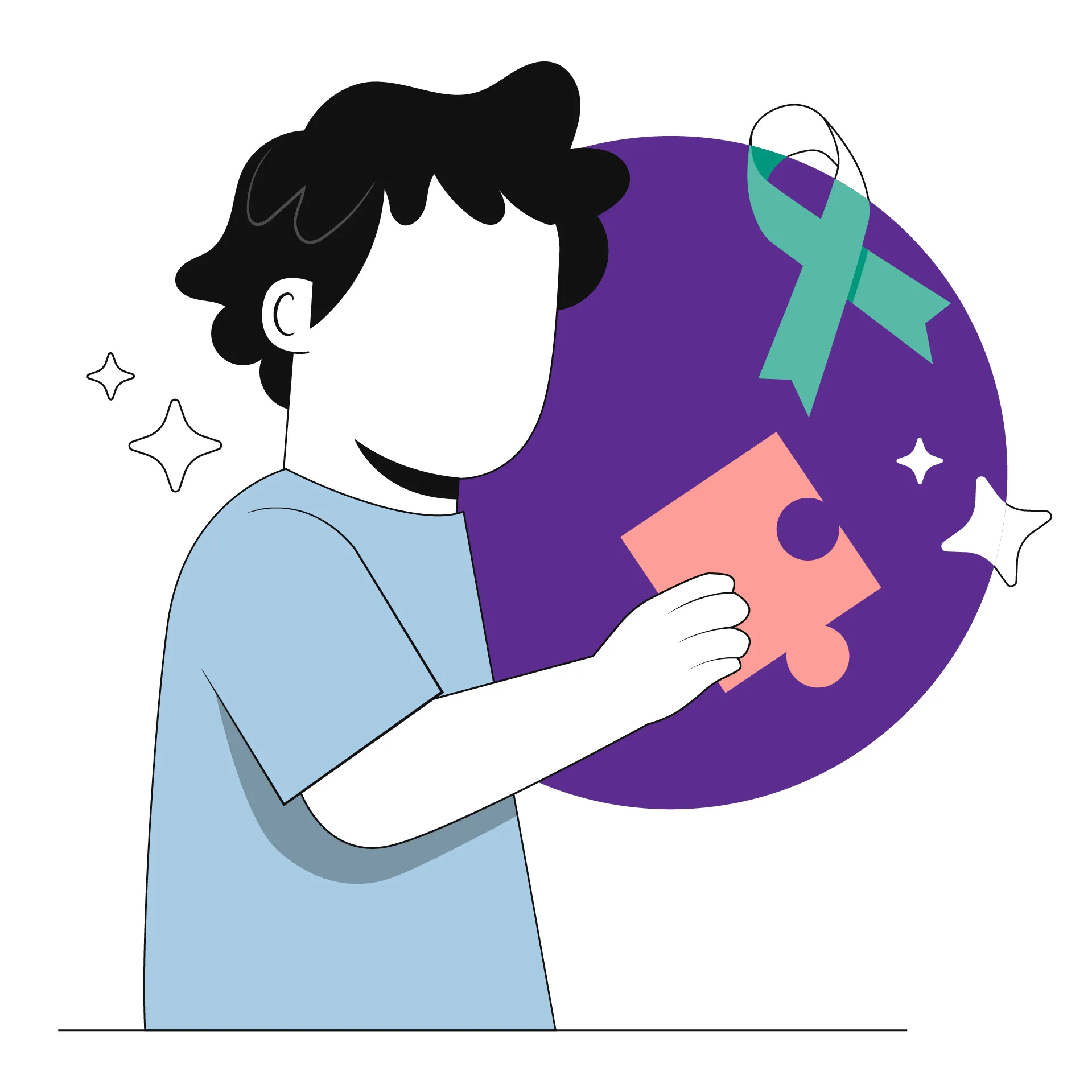Psychiatrist | 4 min read
What is Tourette Syndrome: Symptoms, Causes and Treatment
Medically reviewed by
Table of Content
Key Takeaways
- Tourette syndrome is named after neurologist Georges Gilles de la Tourette
- Those with Tourette’s syndrome make repetitive movements or sounds
- This syndrome is also called tic disorder due to the repetitive tics it causes
Tourette syndrome, or Tourette’s syndrome, named after French neurologist Georges Gilles de la Tourette, is a health disorder that leads to a person making repetitive movements or sounds without control. The movements or sounds are called tics, so the syndrome is also called tic disorder.
This syndrome frequently appears among children and teenagers, where the usual range of age is between 2 and 15 years. As per studies, Tourette syndrome is more likely to affect men than women [1]. Read to know important details about tic disorder.
Additional Read: Obsessive-compulsive DisorderTourette Syndrome Symptoms
As per the sources of tics, there can be two types of symptoms for Tourette syndrome – vocal and motor. In the case of vocal tics, you may repeatedly clear your throat, make abnormal sounds or speak in a foul language.
On the other hand, motor tics involve uncontrolled movements of your body like shaking an arm, blinking your eyes, or shrugging your shoulder. When it comes to the muscles involved in the tics, they are divided into two types – simple and complex. Take a look at the following tables to understand the types and symptoms better.
- Simple tics
- Vocal
- Motor
- Clearing your throat
- Blinking your eyes
- Coughing repeatedly
- Making random mouth movements
- Spitting
- Shrugging your shoulder
- Making random grunts or noises
- Twitching your nose
- Inhaling and exhaling noisily
- Jerking your head
- Complex tics
- Vocal
- Motor
- Blurting out offensive or vulgar words
- Following a certain pattern while walking
- Repeating words or phrases incoherently
- Smelling or touching random objects
- Getting stuck in between speech
- Making obscene gestures

Tourette Syndrome Disorder Diagnosed
There is no single test with which doctors can diagnose Tourette’s syndrome. Instead, they look at your signs and symptoms to understand your chance of having this disease. Here are some criteria doctors usually follow to identify tic disorder:
- Presence of both vocal and motor tics
- Tics not linked to other medical conditions or medications
- Occurrence of tics several times a day
- The transformation over time in the severity, complexity, and types of tics
Keep in mind that Tourette syndrome can be misdiagnosed due to its similarity with other conditions. For example, cold and allergy can lead to signs like blinking your eyes, coughing, and twitching your nose. In such cases, doctors may advise procedures like MRI or blood tests to be doubly sure.
Additional Read: Types of Mental IllnessesTourette Syndrome Treatment
Note that there is no permanent cure for this condition. However, you can control and manage tics with therapy and prevent them from affecting your day-to-day activities. Also, remember, if the tics are mild, there is no need to undergo a course of treatment. In severe cases, doctors may recommend therapy or medication, or both.
Here’s a look at common therapies and medicines for Tourette syndrome treatment.

Therapies for Tourette Syndrome
- Psychotherapy
- Behavior therapy
- Deep brain stimulation
Medications for Tourette Syndrome
- Antidepressants
- ADHD medications
- Botulinum injections (Botox)
- Medications to control or block dopamine
- Medications to treat epilepsy
- Medications to control BP (central adrenergic inhibitors)
How to Support Someone with Tourette syndrome?
It is important to motivate individuals with tic disorder to build their self-esteem. If your children are suffering from this syndrome, make sure you spend enough time with them and boost their morale. Also, speak to your children’s teachers, friends, and other people with whom they interact to make them aware of the condition and ensure inclusion.
If you are suffering from this disorder yourself, don’t be shy about it. Always remember that after your teenage years, there are few chances for you to have severe Tourette's, meaning these symptoms are not going to bother you across your lifetime. For better advice on how to cope, you can reach out to others who have experienced tic disorder in the past. You can also start doing mindful exercises to boost your mental health.
To understand the benefits of meditation and its role in controlling Tourette syndrome, you can opt for a doctor consultation on Bajaj Finserv Health. Get personalized advice on how to manage and control your tics and learn about the different benefits of relaxation techniques that can make you feel calmer. You can get advice on all this and more by booking a teleconsultation with specialist doctors on the portal or app. If needed, you can also book an in-person appointment in seconds to get the right treatment.
References
- https://medlineplus.gov/genetics/condition/tourette-syndrome/#:~:text=Although%20the%20exact%20incidence%20of,in%20males%20than%20in%20females.
Disclaimer
Please note that this article is solely meant for informational purposes and Bajaj Finserv Health Limited (“BFHL”) does not shoulder any responsibility of the views/advice/information expressed/given by the writer/reviewer/originator. This article should not be considered as a substitute for any medical advice, diagnosis or treatment. Always consult with your trusted physician/qualified healthcare professional to evaluate your medical condition. The above article has been reviewed by a qualified doctor and BFHL is not responsible for any damages for any information or services provided by any third party.




